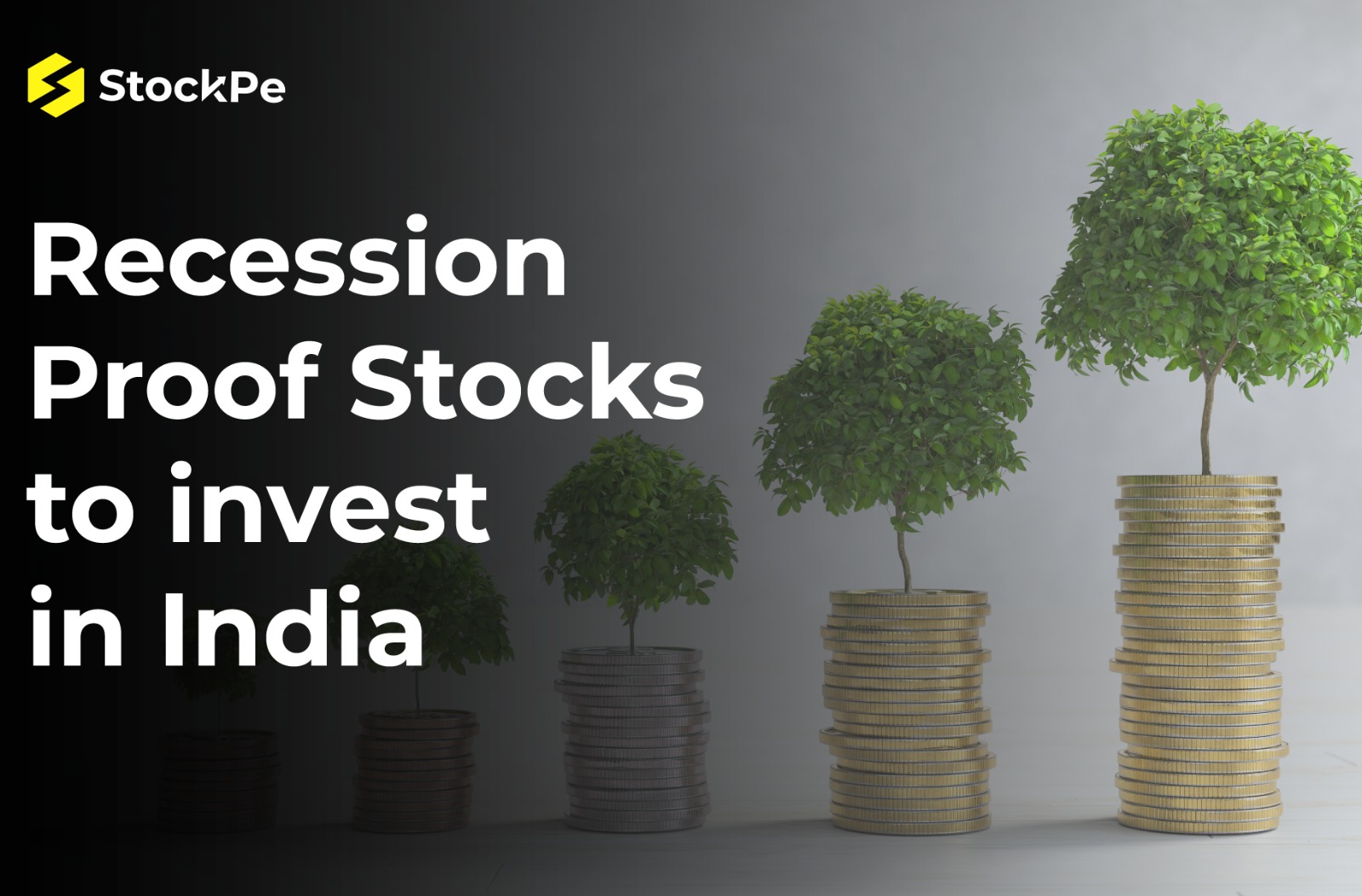What is Recession?
Recession can be caused by a variety of factors, but one of the main causes is when there is a downturn in the economy. This can happen when there is a decrease in economic activity, which means that people are spending less money and businesses are making less money.
There are a few things that can cause this decrease in economic activity. One is when there is a decrease in demand for goods and services. This might happen if people are worried about the economy or their own financial situation and decide to spend less money. When people spend less money, businesses make less money, and this can lead to job losses and businesses closing down.

What causes Recession?
Another thing that can cause a recession is if there is a decrease in the supply of goods and services. This might happen if there is a natural disaster, like a hurricane, that damages factories or other businesses. If businesses can’t produce as much as they used to, there will be less supply of goods and services.
A recession can also be caused by changes in the financial markets. For example, if there is a housing market bubble that bursts, it can lead to people losing their homes and banks losing money. This can have a ripple effect on the economy as a whole, causing businesses to make less money and people to lose their jobs.
Finally, government policies or regulations can also cause a downturn in the economy. For example, if the government raises taxes or interest rates, it can make it more expensive for businesses and individuals to borrow money, which can lead to a decrease in spending and a downturn in the economy.
Overall, recession can be caused by many different things, but they usually involve a decrease in economic activity, which can have a big impact on businesses and individuals.
Recession proof Assets:
Assets like gold are hedged to a stable benchmark. Hence these finance classes have more liquidity. This means, these assets can be easily converted to cash. Hence, these assets have the potential to be recession-proof.
Gold and silver:
Gold and silver are considered safe-haven assets and have a long history of holding their value during economic downturns. During times of crisis, investors tend to move their money into precious metals as a way of protecting their wealth. This increased demand can cause the price of gold and silver to rise.
Bonds:
Bonds are generally considered to be low-risk investments that provide a fixed income stream. During recessions, interest rates tend to fall as central banks attempt to stimulate the economy. This can cause the value of bonds to increase, making them a good choice for investors looking for stable returns.
Gold ETFs:
Gold ETFs are exchange-traded funds that hold physical gold. They allow investors to invest in gold without actually owning the physical metal. Gold ETFs are a popular way to invest in gold as they offer liquidity and diversification benefits.
Hedging instruments:
Hedging instruments such as options and futures contracts can be used to protect against market volatility and limit losses during economic downturns. These financial instruments allow investors to lock in a price for an asset or index, which can help protect their portfolio in case of a downturn.
5 Recession proof stocks in 2023 :
Recession-proof stocks are those that can withstand economic downturns and maintain their performance even during times of high inflation and low GDP growth. Some examples of recession-proof industries include consumer staples (e.g. Procter & Gamble), discount retailers, and healthcare.
When looking for recession-proof stocks, it’s important to consider factors such as the company’s cash flows, the industry it operates in, and its long-term prospects. Some examples of recession-resistant stocks in the US include Procter & Gamble, Walmart, and Costco.
Building a Recession-Proof Portfolio:
A recession-proof stock portfolio should include a mix of stocks from various industries that have a history of performing well during economic cycles. It’s also important to diversify across different asset classes and geographies to mitigate risks.
The Federal Reserve’s policies and interest rates can have a significant impact on the stock market and the performance of recession-proof stocks. It’s important to keep an eye on the macroeconomic environment and adjust the portfolio accordingly.
Some popular benchmarks for tracking the performance of the stock market include the S&P 500 and the Dow Jones Industrial Average. However, it’s important to note that not all recession-proof stocks may be included in these indices.
How to pick Recession-Proof Stocks?
When setting a price target for a recession-proof stock, it’s important to consider the company’s financials, growth prospects, and the overall market conditions. A conservative approach may be to use a discounted cash flow model to estimate the stock’s intrinsic value.
To build a recession-proof portfolio, it’s important to focus on companies that have a strong balance sheet, low debt, and a history of generating stable cash flows. Additionally, investing in sectors that are relatively immune to economic downturns, such as healthcare and utilities, can help mitigate risks.This list was curated by our in-house team of research analysts.
It’s unclear whether there will be a recession in 2023, as economic cycles are notoriously difficult to predict. However, building a recession-proof portfolio can help investors weather any potential downturns and protect their capital.
In India, some recession-proof stocks include Hindustan Unilever, Britannia Industries, and Nestle India. These companies operate in industries that are essential to consumers and have a relatively stable demand even during economic downturns.
The Top 5:
Brittania:
Britannia Industries is one of India’s leading food companies with a 100-year legacy and annual revenues in excess of Rs. 9000 Cr. Britannia’s product portfolio includes Biscuits, Bread, Cakes, Rusk, and Dairy products including Cheese, Beverages, Milk and Yoghurt
The FMCG Brand basic necessities like food and household products in the consumer goods industry. Britannia has a strong brand reputation and customer loyalty. The company has been operating in India for over 100 years and has built a strong brand image as a trusted provider of high-quality bakery and dairy products. This brand reputation and customer loyalty are likely to help Britannia maintain sales even during an economic downturn. Britannia has a strong financial position with solid cash flows, which can help the company weather economic turbulence.
KRBL:
KRBL Limited is an Indian rice processing and exporting company, and the world’s largest rice miller. It is best known for its India Gate brand of basmati rice, which is the largest selling rice brand in India.
ITC:
ITC Limited is an Indian conglomerate company headquartered in Kolkata. The conglomerate has a diversified presence across industries such as FMCG, hotels, software, packaging, paperboards, specialty papers and agribusiness. The company has 13 businesses in 5 segments. It exports its products in 90 countries.
ITC is Brittania’s competitor. This brand has a strong presence in various sectors. The ITC Conglomerate caters to consumers across economic segments with different purchasing power parity. From farmers to luxury hospitality, ITC has a legacy footprint in various industries. This makes the brand more resistant to recession.\
Colpal:
Colgate-Palmolive (India) Limited was incorporated on September 23, 1937. In the year 1983, the company introduced their successful product Colgate Plus toothbrush in the market. In the year 1988, CPIL received a licence for producing 24,000 tonnes per annum of fatty acids.
ColPal is the Desi Subsidiary of Colgate – the International Conglomerate . The brand is the major market player in a variety of consumer goods, primarily – toothcare. Colgate is a household name in India and is synonymous to toothpaste and toothbrush. This means that consumers will buy toothpaste regardless of the state of economy.
Denora India:
With over 95 years of activity in the electrochemical industry, De Nora is recognized worldwide as a leading supplier of technologies for the production of chlorine, caustic soda, and derivatives for the Chlor-alkali industry, as well as the world’s largest manufacturer and recoater of noble metal-coated electrodes.
The brand has a strong presence in India due to sheer loyalty of clients who have stayed with the brand. The massive use of chemicals and a legacy brand name advantage ensures that the stock is recession proof.





